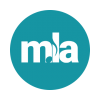Music Library Association Annual Meeting 2020, Norfolk, VA
Summary written by Chuck Peters, Indiana University
Session presenters: Tracey Snyder, Cornell University; Angela Pratesi, University of Northern Iowa; Kate Lambaria, University of Illinois at Urbana-Champaign; Allison McClanahan, Indiana University; Lisa Wollenberg, University of Hartford
Sponsors: Cataloging and Metadata Committee, Instruction Subcommittee, Reference and Access Services Subcommittee
In this session, cataloging, reference, and library instruction experts were given the opportunity to interact. Through a guided discussion of their respective challenges, opportunities, and successes, participants focused on the primary goal of improving patron outcomes in the library.
Those attending the session were seated around tables arranged by brand of integrated library system (ILS), and/or discovery layer. Each table included attendees with an assortment of job responsibilities, to enhance the discussion. Allison McClanahan, Collections and Cataloging Librarian, Archives of Traditional Music, Indiana University, and Lisa Wollenberg, Public Services Librarian, University of Hartford, assisted with the identification and seating process.
Tracey Snyder, Music Catalog and Instruction Librarian, Cornell University opened with the time-honored quote from OCLC: “Cataloging IS a public service.” To frame the conversation that was to follow, she used catalog search results for the musician Prince. The “browse by author” results from her ILS were arranged to show “works by” and “works about”—a display that many attendees remarked was not being made available by their institutions’ systems.
Angela Pratesi, Fine and Performing Arts Librarian, University of Iowa, led participants with a series of questions that were designed to serve as prompts for small group discussions. The group at each table contributed results of their conversations to a shared document, and after each exercise there was an opportunity to give feedback to the entire room.
The first prompt asked, “What’s something that works well in your (reference/instruction/cataloging) praxis? Examples include: a favorite search or browse technique in the catalog/discovery layer; or an aspect of the catalog record that you take pride in.” Common themes emerged from the discussions: reacting to the first example in the question, many participants expressed pride in their library experts’ success in training students in effective searching procedures. When addressing the second example, many expressed their appreciation for cataloger-supplied contents notes.
The second prompt addressed difficulties: “Challenges. Suggestions: an area of LCSH that is difficult to apply; a type of catalog search that tends to fail; are there solutions?” As one might expect, answers to this prompt displayed a range of problems, many of them having to do with the ILS or the discovery layer. Difficulty in searching, or in interpreting search results, were common themes.
The third prompt had to do with successful routines, and asked, “Standard processes. What’s something that you find yourself doing frequently and that usually goes smoothly? A typical reference transaction or instruction scenario? A common cataloging task?” Interestingly, most tables had been so energized by the previous prompt on challenges that they continued that topic, skipping the discussion on standard processes. Those who did comment mentioned examples of improving service, such as cataloging backlog items, or improving patron searching techniques.
The fourth prompt focused on challenges outside of the ordinary routine: “Outliers. Describe an unusual or challenging puzzle or situation and how you solved it (or tried to solve it). For example: a musician or musical work that required lots of research for the catalog record, or a medium of performance that was hard to search for in the catalog/discovery layer.” One cataloger mentioned the difficulty encountered when attempting to identify works and creators, while a public services expert cited an example of providing long-distance assistance to researchers. Reacting to the medium of performance element in the prompt, both groups expressed frustration with the uneven efforts to code the appropriate information in bibliographic records, and to index the fields for searching.
The fifth and final prompt was an invitation to free discussion: “Open sharing. What questions do you have for your colleagues in a different area of music library work? What else would you like them to know? Do you have an information-sharing process in place at your institution that includes public-facing staff and technical services staff?” Responses were varied; one participant said they worked in a small conservatory, making conversation among staff easy and causing necessary changes in searching and catalog display to be readily made. Another, representing a larger institution, praised the helpful statistical reports that are produced from their ILS by public and research services, used to inform patrons and library staff alike of the wide-ranging extent of their collections. Still another said at their institution it was found to be effective to have a single point of contact for troubleshooting ILS or discovery layer problems. Someone suggested offering cataloging instruction to public services experts, to increase understanding of how the catalog works. Another suggested that we remember that public services workers are welcome to ask catalogers for assistance in finding items in the catalog.
One result of this session—attended by more than 110 people—was that catalogers, reference experts, and library instruction experts had the opportunity to learn from each other the challenges and opportunities specific to their tasks. Participants were enthusiastic about the conversations that took place and expressed their support for repeating the exercise in future MLA conferences.
